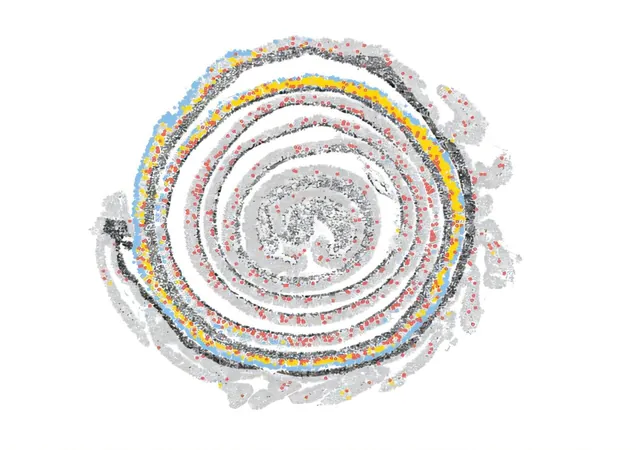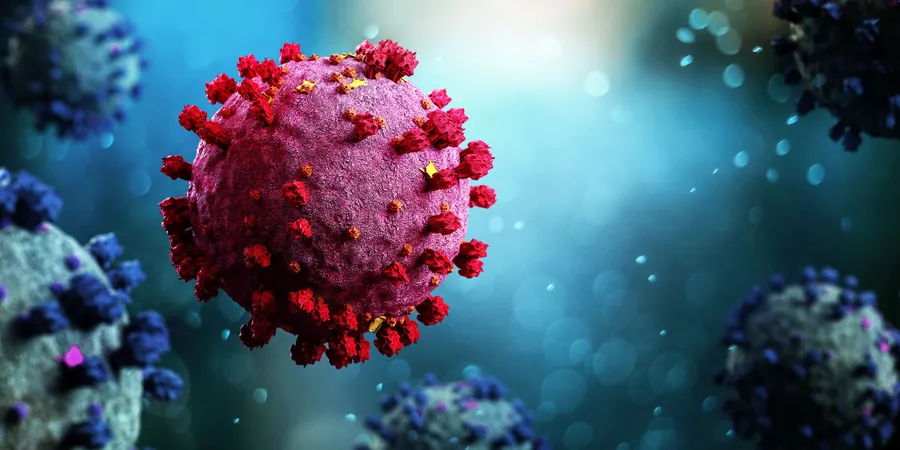
Breakthrough Discovery: How Mouse Intestines are Masterfully Regulated by the Immune System!
2024-11-20
Author: Arjun
Groundbreaking Discovery of Mouse Intestines and Immune System
Scientists have made a groundbreaking discovery by unveiling the intricate workings of the mouse intestine and its powerful connection to the immune system. This revolutionary understanding could pave the way for new treatments for severe gastrointestinal conditions like celiac disease, ulcerative colitis, and Crohn's disease, which disrupt the essential balance maintained by the gut.
Research Collaboration at Broad Institute and Massachusetts General Hospital
At the forefront of this research are scientists from the Broad Institute of MIT and Harvard, alongside experts from Massachusetts General Hospital. Their ambitious study, published in the prestigious journal *Nature*, utilized advanced techniques to map gene expression and cell states throughout the entire mouse intestine—shedding light on how different regions of this vital organ adapt to environmental changes, especially during inflammation.
Astonishing Findings on Intestinal Balance
What the researchers found is astonishing: different sections of the intestine exhibit a tightly regulated balance of cell types and states, with a uniquely controlled segment of the colon responding specifically to immune signals. "The intestine has been a topic of research for decades, yet this detailed level of characterization has never been achieved before," stated Toufic Mayassi, a key investigator in the study. "Our results challenge existing research and open new avenues for exploration."
Creating a Comprehensive Blueprint of the Gut
The researchers aimed to create a comprehensive blueprint of the gut, and their success could transform the landscape of gastrointestinal research. This mapping offers a detailed backdrop against which future studies can be analyzed—allowing researchers to look deeper into how genetic variants and immune responses related to diet can affect gut health.
New Approach to Functional Studies
Unlike past studies, which often focused on isolated cell cultures or simplified models, this groundbreaking research looked at the entire organ's functionality. Strikingly, they discovered that even amidst inflammatory challenges, the spatial organization of cell types within the gut remained stable. The intestine appeared resilient; when subjected to inflammation-inducing treatments, it demonstrated an incredible ability to recover its structure and function over time.
Role of Goblet Cells and Immune Response
What makes this research even more intriguing is the highlighted role of specific cell types, particularly goblet cells that secrete mucus, which showed different gene expressions depending on the presence of certain immune cells called ILC2s. This suggests a sophisticated defense mechanism at play, where the immune system finely tunes the gut's response to its microbial inhabitants.
Future Directions in Gut Research
Looking ahead, the research team plans to delve deeper, investigating how various factors—such as sex, diet, food allergies, and genetic predispositions to inflammatory bowel diseases—affect the spatial dynamics of the intestine. They aim not only to solidify this new understanding of mouse intestines but also to explore how these findings could correlate with spatial regulation in the human gut.
Conclusion and Implications for Treatment
As we stand on the brink of these exciting developments, one question arises: how will this newfound knowledge reshape our approach to treating gut-related ailments? Stay tuned as we uncover more revelations from the world of intestinal research!


 Brasil (PT)
Brasil (PT)
 Canada (EN)
Canada (EN)
 Chile (ES)
Chile (ES)
 España (ES)
España (ES)
 France (FR)
France (FR)
 Hong Kong (EN)
Hong Kong (EN)
 Italia (IT)
Italia (IT)
 日本 (JA)
日本 (JA)
 Magyarország (HU)
Magyarország (HU)
 Norge (NO)
Norge (NO)
 Polska (PL)
Polska (PL)
 Schweiz (DE)
Schweiz (DE)
 Singapore (EN)
Singapore (EN)
 Sverige (SV)
Sverige (SV)
 Suomi (FI)
Suomi (FI)
 Türkiye (TR)
Türkiye (TR)